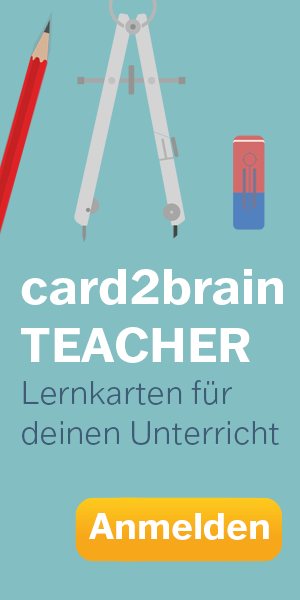Fachdidaktik 1&2
FD2 Theorie Englisch
FD2 Theorie Englisch
Kartei Details
| Karten | 27 |
|---|---|
| Sprache | English |
| Kategorie | Pädagogik |
| Stufe | Universität |
| Erstellt / Aktualisiert | 06.06.2013 / 13.06.2016 |
| Weblink |
https://card2brain.ch/box/fachdidaktik_12
|
| Einbinden |
<iframe src="https://card2brain.ch/box/fachdidaktik_12/embed" width="780" height="150" scrolling="no" frameborder="0"></iframe>
|
Lernkarteien erstellen oder kopieren
Mit einem Upgrade kannst du unlimitiert Lernkarteien erstellen oder kopieren und viele Zusatzfunktionen mehr nutzen.
Melde dich an, um alle Karten zu sehen.
Skills (4)
Speaking
Writing
Listening
Reading
Systems (4)
Lexis (What ist the individual word?)
Grammar (How do the words interact?)
Function ( What ist the use of the word in a specific situation?)
Phonology (What does the word sound like?)
Listening (3) general
Types, Techniques, Frameworks
Types of listening
Listening for specific information
Global/gist listening (main idea)
Inference (between the lines)
Listening techniques (film)
- fast forward
- silent viewing
- freeze frame
- pictureless listening
- subtitles
Framework
- Pre-listening
- while-listening (3types)
- post-listening (follow->closing)
Reading techniques (11)
- Skimming (reading quickly to get main idea)
- Scanning (reading quickly to get specific information)
- Intensive/Accurate reading (carefully)
- Extensive, gist (reading speed)
- Making inferences (reading between the lines)
- Contextual guessing (meaning of a word in a context)
- Outlining (overall organisation of text)
- paraphrasing (say in other words)
- information transfer (into other form)
- Passage completion (predicting)
- Scrambled stones (put in right order)
Speaking (3Types)
- Reproduction (repeat word by word)
- Reconstruction (adapting phrase to new situation)
- construction (communicate)
Different kinds of gap: (4)
- Information gap (one has the info, other hasn't)
- Experience gap
- Opinion gap
- Knowledge gap
Outcome of communication activity
unpredictable
- realt time
- interaction
- no restriction
Forms of writing (4)
- Copying
- Doing excercises
- Guided writing
- Free writing
accuracy -> fluency
2 Approaches of Writing
Product approach (model Text)
process aporach (plan-write-edit)
Lexis
- Single word
- collocations (common going-together patterns)
- chunks/multi word items(use like one single word)
- polywords (like single word)
- frames (depends on context)
- sentences (occure often like this)
- patterns
- to know a word you have to know form and meaning
- learn words: label -> categorize -> network building
- short term store -> working memory -> long term memory
how to learn words (8)
- repetition,
- retrieval (from memory),
- spacing (over a long time)
- pacing (using different styles)
- use
- personal organisation (personalize words)
- Mnemonics (Eselsbrücken)
- Motivation / affection
Grammar (2 approaches)
Inductive approach (rule is infered through guided discovery)
Deductive approach (rule is presented by teacher)
Grammar Pre- vs. Descriptive
- pre: rules, what is right and wrong
- de: how people use language
Help learners to enjoy grammar (5)
- Provide Context
- personalize the language
- make it as implicite as possible
- show importance of grammar in communication
- provide a written record
Consciousness Raising Activity (Grammar (5)
- Gramm. of Strucutre (mem. rules)
- Gramm. of Orientation (memorize forms, chunks)
- Gramm. of Class
- Lexical phrase (Lexical set)
- Collocation (Words that are used together)
Task based learning
- Start with what pupils already know
- Pre-task, task cycle, language focus
- Beginners: longer pre task
- short task, no planning
- fluency first, then accuration
- students should talk much
Task (what about it)
- Focus on meaning
- Engage learners
- Outcome
- Comletion is important
- Real world
Top Down
- General knowledge
- life situations
- situational routins
FROM MEANING TO LANGUAGE
Bottom-up
- Knowledge you have to build up
- Incoming input as basis for understanding message
FROM LANGUAGE TO MEANING
ACR
Descriptive tools to analyse a lesson
- Authentic (language I know, For meaning, communication, rela life, pleasure)
- Clarification (Zoom in and look closely, rules, exaples, translation, about form & meaning)
- Restricted (Part of what i know, for: form, practice, accuracy, testing, display)
Frameworks (3)
- Test Teach Test
- Presentation practice Production (for accuracy)
- Task based learning (focus on form)
Lesson Plan:
General: Topic/Contents, Main aims, subsidiary aims
Time, Stage and aim, Procedure, ACR, Interaction, Material
Possible lesson aims (7)
- Clear statement
- Concrete
- Full sentences
- Positive statements
- checkable at the end of a lesson
- NOT! an activity
- NOT! Grammar -> Skills!!!
Pre-Task
Introducing topic and task
Function: Warm learners up, engage them, give them goals, make them focus, motivate
Ideas: Classifying words and phrases, listening, brainstorm, motivation phrases and pictures
-
- 1 / 27
-
